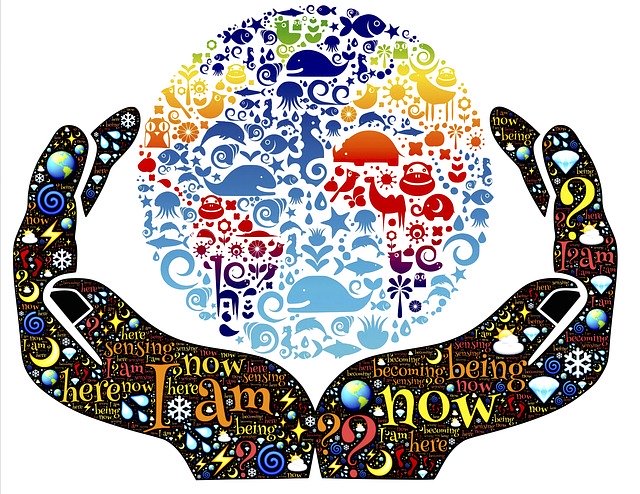Jeremiah 20:7-13; Psalm 69:7-18; Romans 6:1b-11; Matthew 10:24-39
Opening prayer
As the hours and days stretch ahead, come walk alongside us. Delight in our simple joys – time with loved ones, a good book, the riot of summer colour, birdsong. Console our sorrows – the pain of love or life lost, the aches and strains of ageing, the disappointment of what is. Meet our fears with the breath of your peace. Awaken us to what is real and what is true. And give us what we need to live as your people, people who walk in newness of life every day. Amen.
Reflection Alive today
We are in Ordinary Time – the long stretch in the Christian calendar which is between Pentecost and Advent. During Ordinary Time we consider what it is to be a follower of the Way of Jesus in day to day life. This year Ordinary Time happens in an extraordinary time in the history of humanity. Not in living memory have we experienced this level of disruption due to a global pandemic. We have been living literally day to day for nearly three months now, not knowing what the next week or month will bring.
There is a spirituality to living in the present moment. Of setting aside the anxiety of not knowing what the future holds. This moment, this day is all we have. This is the true state of human life. We never really know what the future holds. And the past, whilst not quite a distant country, is past.
That said, the present moment is always a fulcrum between future and past. What we do or don’t do, choose or buy today will impact the future. And the hurts and wrongs of yesteryear continue to shape our today. The fullness of today is lived in awareness that there are consequences of our actions – consequences for the planet, for people in our community and nation and for people around the world. And that there are things from yesterday that need redress – injustices rooted in the past that continue (like racism).
So today is not just today. It is a day poised between past and future in which the potential for newness of life resides. That is what Paul says about our life as Christians. That Christ was raised from the dead so that we too might walk in newness of life (Romans 6:4). Our baptism is a dying and rising. By it we die to sin – we are “no longer enslaved to sin” (Romans 6:6) – and rise to the freedom to live in the newness God has for us and the world.
Yet we sleepwalk through so many of our days. The theologian Andrew Shanks[1] says that original sin is the state of being cut off from the reality of our own and other’s lives. It’s a kind of sleepwalking. Sinful sleepwalking is being enslaved to the herd mentality that accepts the way things are, that allows the powerful (who benefit from the way things are) to pull the wool over our eyes so that they can continue to get rich and keep power, that closes our eyes and our ears to the suffering of others.
Jesus says in today’s gospel reading that he came not to bring peace but a sword (Matthew 10:34). The sword of truth pierces the world with reality. He came to wake and to shake us up, to present us with the choice to live in the newness of life God offers, to free us from enslavement to sin, and to give us the power to live that newness.
The extraordinary times we are living through shake us from sleep and complacency. We have to close our eyes tight to not notice what is being revealed in these times: the interdependence of all life, the suffering of those who are less valued, our need for each other, that our stopping allowed the earth to breathe and to recover from the assaults of our unthinking way of living.
Sometimes we need to sleep. We get tired. We are finite, in need of rest and renewal. But sleepwalking is a different thing. Human beings, T.S. Eliot observed, cannot bear very much reality.[2] Ah yes, original sin.
The piercing sword seeks to free us from the bonds of sleepwalking. Jesus asks us to bear reality – to bear it as he did with arms outstretched to embrace the whole world, feet rooted in the good earth, vision fixed on our good God who desires to save us all from ourselves. And he gives us the power, and the peace, to do it.
Today is all we have, yes. But oh what a day to live in the power, the passion and the peace of our Lord Jesus Christ. May we so live, today and everyday. Amen.
Hymn R&S 433 O thou who camest from above
Recording by the Virtual Church Choir
O thou who camest from above,
the pure celestial fire to impart,
kindle a flame of sacred love
on the mean altar of my heart.
There let it for thy glory burn
with inextinguishable blaze;
and trembling to its source return,
in humble prayer and fervent praise.
Jesus, confirm my heart’s desire
to work and speak and think for thee;
still let me guard the holy fire,
and still stir up thy gift in me:
ready for all thy perfect will,
my acts of faith and love repeat,
til death thine endless mercies seal,
and make my sacrifice complete.
Blessing
Let us go into this day and the next
with a song on our lips
and a spring in our step
as we live the newness of life
Christ gives to the whole world.
Amen.
[1]Andrew Shanks, Hegel and Religious Faith: Divided Brain, Atoning Spirit (London and New York: Bloomsbury T&T Clark, 2011).
[2] T. S Eliot, Four Quartets: Burnt Norton.

